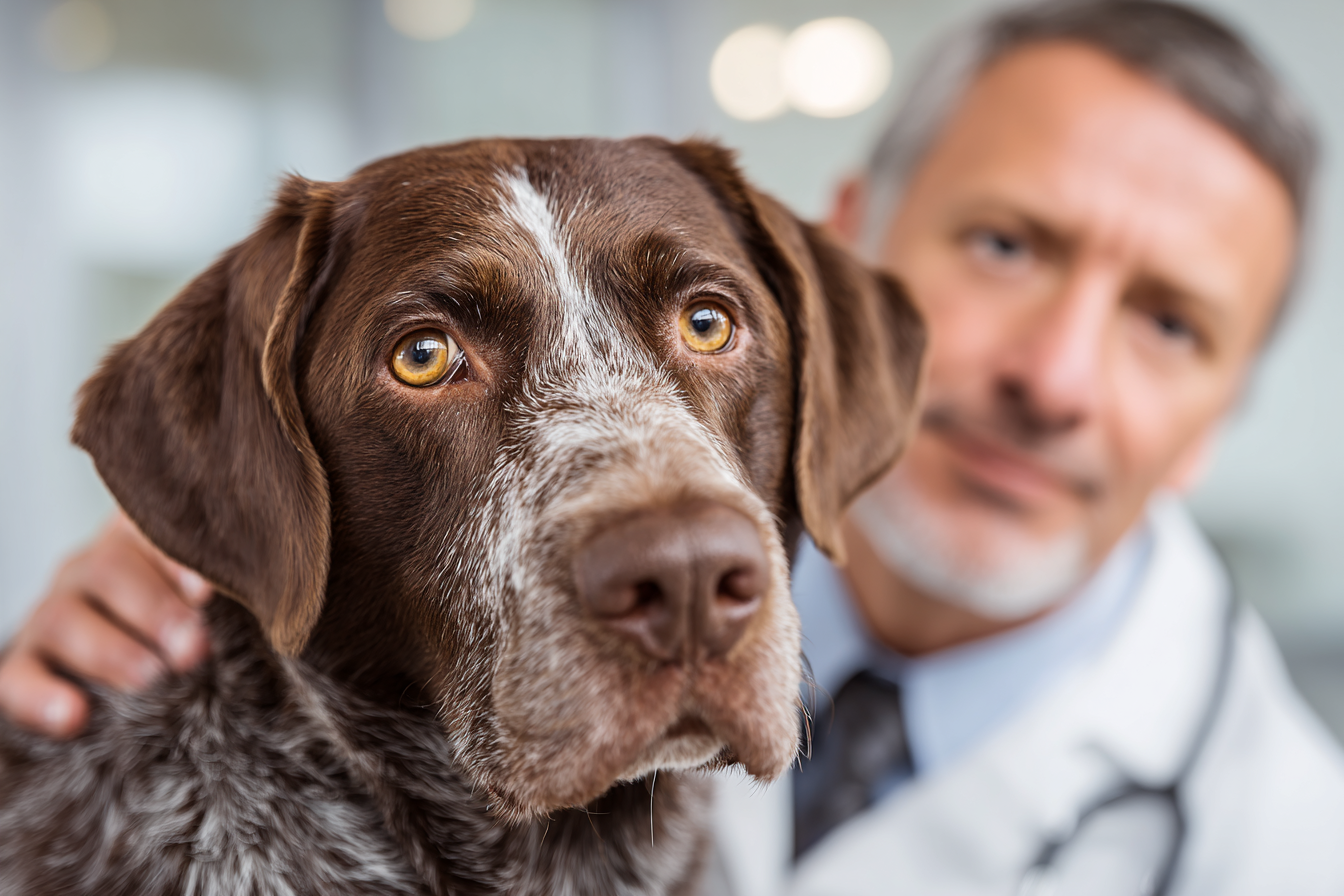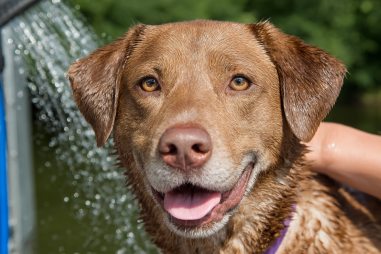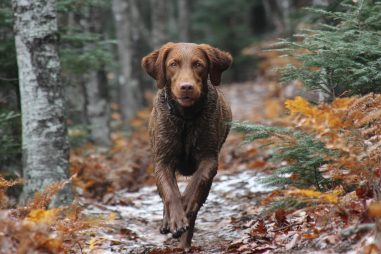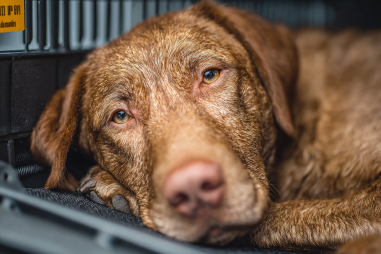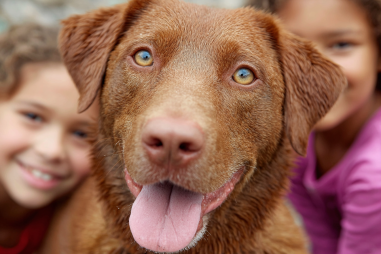Chesapeake Bay Retrievers, affectionately known as “Chessies,” are robust, intelligent, and loyal dogs prized for their versatility and endurance. However, like all breeds, they have specific health concerns potential owners and current caregivers should be aware of to ensure their pets live healthy, happy lives. Understanding these health risks, recognizing symptoms early, and providing proper care can significantly improve your Chesapeake Bay Retriever’s quality of life and longevity.
Overview of Breed-Specific Health Risks
Chesapeake Bay Retrievers are generally hardy dogs, but they are predisposed to certain hereditary and environmental health issues. Some of the common health concerns in this breed include hip dysplasia, various eye conditions, skin allergies, and joint problems. Awareness of these risks can help owners take proactive steps in monitoring and managing their dog’s health effectively. Regular veterinary check-ups and preventive care are crucial in minimizing the impact of these conditions.
Hip Dysplasia and Joint Problems
One of the most significant health issues affecting Chesapeake Bay Retrievers is hip dysplasia. This genetic condition occurs when the hip joint develops abnormally, leading to looseness or instability between the ball and socket joints.
Hip dysplasia can cause pain, lameness, and eventually arthritis, which can profoundly affect your dog’s mobility and comfort. Symptoms to watch for include difficulty rising, reluctance to jump or climb stairs, and a noticeable limp.
In addition to hip dysplasia, Chessies are also prone to other joint problems such as elbow dysplasia and arthritis as they age. Management strategies include:
- Maintaining a healthy weight to reduce stress on joints
- Regular, low-impact exercise such as swimming or leash walks
- Providing joint supplements containing glucosamine and chondroitin
- Consulting your veterinarian for pain management and potential surgical options if necessary
Eye Conditions
Chesapeake Bay Retrievers may develop several eye problems that can impact their vision if not detected early. Common eye conditions include:
- Progressive Retinal Atrophy (PRA): This is a genetic disorder that causes gradual deterioration of the retina leading to blindness.
- Cataracts: These cause cloudiness in the eye’s lens and can impair vision.
- Distichiasis: A condition where extra eyelashes grow inward irritating the eye.
Owners should watch for signs such as excessive tearing, squinting, redness, or changes in the dog’s behavior that might indicate vision problems. Annual eye examinations by a veterinary ophthalmologist can help detect and manage these issues early.
Skin Allergies and Coat Care
Chesapeake Bay Retrievers have a dense, water-resistant double coat that requires regular grooming to maintain its health. Despite their hardy nature, they can be prone to skin allergies and irritations. These allergies can be caused by environmental factors such as pollen, fleas, or dietary sensitivities.
Signs of skin allergies include itching, redness, hair loss, and secondary infections due to scratching. Proper coat care is essential and includes:
- Regular brushing to remove dead hair and prevent mats
- Bathing with hypoallergenic or medicated shampoos when recommended
- Flea control using products approved by your veterinarian
- Monitoring diet and discussing potential food allergies with your vet
If your Chessie shows persistent skin issues, it’s best to seek veterinary advice to identify the allergens and develop a treatment plan.
Preventive Care and Screening Tests
Preventive care plays a vital role in managing health concerns related to Chesapeake Bay Retrievers. Regular veterinary visits can help catch problems early before they become severe. Essential screening tests for this breed include:
- Hip and Elbow Evaluations: X-rays to assess joint health are recommended, especially for breeding dogs.
- Eye Exams: Annual examinations by a veterinary ophthalmologist to screen for hereditary eye diseases.
- Routine Blood Work: To monitor organ function and detect underlying disorders early.
Vaccinations, parasite control, and dental care are also key components of preventive health management. Establishing a good relationship with your vet ensures you get personalized advice tailored to your dog’s age and lifestyle.
Nutrition and Supplements
A balanced diet tailored to the needs of Chesapeake Bay Retrievers supports their overall well-being and mitigates some breed-specific health risks. High-quality commercial dog foods or veterinarian-approved homemade diets rich in essential nutrients promote healthy skin, coat, joints, and immune function.
Supplements can also play a helpful role in managing joint health and skin conditions, such as:
- Omega-3 Fatty Acids: For anti-inflammatory benefits and skin health
- Glucosamine and Chondroitin: To support cartilage and joint function
- Antioxidants: To bolster immune defenses
Before adding supplements to your dog’s diet, consult with your veterinarian to ensure they are appropriate and to establish proper dosages.
When to Consult the Vet
While routine care is essential, certain signs or behaviors warrant a prompt visit to the vet for Chesapeake Bay Retriever owners. Keep an eye out for symptoms such as:
- Persistent limping or difficulty moving
- Changes in vision or eye appearance
- Excessive scratching, redness, or signs of skin infection
- Appetite loss or unexplained weight changes
- Behavioral changes such as withdrawal or irritability
Early consultation can lead to timely diagnosis and a better chance of managing or curing many conditions, increasing your dog’s comfort and lifespan.
Ensuring a Long, Healthy Life
Caring for a Chesapeake Bay Retriever involves understanding their unique health challenges and taking active steps to protect them. By combining regular veterinary care, a healthy diet, attentive grooming, and a watchful eye, you can help your Chessie thrive and enjoy many fulfilling years by your side. Remember, knowledge and early intervention are your best allies in giving your beloved dog the quality of life they deserve.

